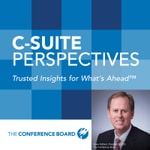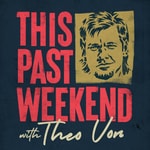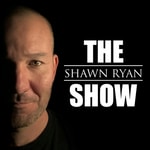The Coffee Klatch with Robert Reich – Details, episodes & analysis
Podcast details
Technical and general information from the podcast's RSS feed.

The Coffee Klatch with Robert Reich
Robert Reich
Frequency: 1 episode/4d. Total Eps: 391

robertreich.substack.com
Recent rankings
Latest chart positions across Apple Podcasts and Spotify rankings.
Apple Podcasts
🇨🇦 Canada - politics
29/07/2025#52🇬🇧 Great Britain - politics
29/07/2025#95🇺🇸 USA - politics
29/07/2025#34🇨🇦 Canada - politics
28/07/2025#75🇺🇸 USA - politics
28/07/2025#43🇫🇷 France - politics
28/07/2025#97🇨🇦 Canada - politics
27/07/2025#72🇺🇸 USA - politics
27/07/2025#58🇺🇸 USA - politics
22/07/2025#100🇺🇸 USA - politics
21/07/2025#90
Spotify
No recent rankings available
Shared links between episodes and podcasts
Links found in episode descriptions and other podcasts that share them.
See allRSS feed quality and score
Technical evaluation of the podcast's RSS feed quality and structure.
See allScore global : 53%
Publication history
Monthly episode publishing history over the past years.
The Trump Wreck: The Coffee Klatch for September 14, 2024
dimanche 15 septembre 2024 • Duration 32:53
Friends,
It was quite a debate and quite a week. Today, Heather and I look back on both and do our best to peer into the future. What effect will the debate have on undecided voters? What does Kamala Harris need to do in the remaining weeks? What will Trump do? Why is Trump refusing a second debate with Harris?
We also examine the consequences of Taylor Swift’s endorsement (and Elon Musk’s grade-school bully boy response). And we take a look at yesterday’s 30th anniversary of the Violence Against Women Act.
So pull up a chair and join us. And please take our poll.
This is a public episode. If you'd like to discuss this with other subscribers or get access to bonus episodes, visit robertreich.substack.com/subscribe
The Upcoming Great Debate: The Coffee Klatch | September 7, 2024
samedi 7 septembre 2024 • Duration 28:35
Friends,
Today, Heather and I examine the upcoming Tuesday night debate between Kamala Harris and Donald Trump.
The American public knows Trump. He has forced himself into our minds for the last decade in every possible way. Yet much of the public doesn’t yet know Harris. Before Biden bowed out on July 21, she was a vice president who, like every vice president before her, was almost invisible.
Heather and I discuss whether it’s most important for her to define herself as strong and competent or define Trump as weak and incompetent? Emphasize law and order, while suggesting Trump is unlawful and disordered? Bait Trump into losing control? We also discuss the Trump trials, the U.S. economy, and other issues that have a bearing.
Please pull up a chair, grab a cup, take our poll, AND make a note on your calendars that Heather and I will host a watch-along of Tuesday’s debate, which you’ll find right here on this Substack.
This is a public episode. If you'd like to discuss this with other subscribers or get access to bonus episodes, visit robertreich.substack.com/subscribe
NOW what for Biden and the Dems?! | The Coffee Klatch, July 6, 2024
samedi 6 juillet 2024 • Duration 26:45
Friends,
Today, Heather and I take a deep dive into Biden’s choices now, after last night’s interview with ABC’s George Stephanopoulos and yesterday’s Biden rallies. Is Biden back on track? Has he recovered from last week’s bad debate performance?
Or are the forces within the Democratic Party that want another candidate for president building to the point where he will almost certainly drop out?
And if he drops out, whom will he anoint?
Please pull up a chair and join us and, if you wish, take our poll:
This is a public episode. If you'd like to discuss this with other subscribers or get access to bonus episodes, visit robertreich.substack.com/subscribe
How can we protect our democracy when the media doesn't let us know how it's being threatened?
jeudi 8 décembre 2022 • Duration 06:26
Hello friends,
Sometimes I feel like screaming at the mainstream media for failing to alert people to crucial (although complicated) issues affecting our democracy coming from different parts of government simultaneously.
Case in point: Moore vs. Harper, argued yesterday before the Supreme Court, and the Electoral Reform Act, which must be enacted before the end of this Congress because Republicans won’t touch it once they control the House.
The two are intimately connected but you wouldn’t know that from the mainstream media, which is treating them as two separate stories. Let me make the connection.
In Moore, North Carolina Republicans aim to restore a redistricting map drawn by the GOP-led legislature but rejected as violating the state constitution by North Carolina’s supreme court.
North Carolina bases its argument on the bonkers “independent state legislature” theory, which interprets Article I Section 4 of the U.S. Constitution (authorizing state legislatures to prescribe “the times, places and manner of holding elections") to give state legislatures sole authority over elections, without interference from state courts.
The theory sprang from the head of Justice William Rehnquist in 2000, who wrote (in a concurring opinion in Bush v. Gore) that “the text of the election law itself, and not just its interpretation by the courts of the States, takes on independent significance.”
Since then, Brett Kavanaugh, Samuel Alito, Clarence Thomas, and Neil Gorsuch have all endorsed aspects of the theory. Notably, they didn’t disavow it in yesterday’s oral argument.
Not only would the theory open the door to extreme gerrymandering, allowing one party to virtually entrench itself in a state. It could also allow state legislatures to reject the results of a presidential election.
Which is where the Electoral Reform Act, now before Congress, comes in.
Article II of the Constitution requires states to appoint presidential electors “in such manner as the Legislature thereof may direct.” And the Electoral Count Act of 1845 allows state legislatures to choose a new manner of appointing the state's electors if the vote for the presidency has “failed” in the state.
But what does “failed” mean and who has the authority to declare a failure?
This wasn’t an issue until the 2020 election, when Donald Trump exploited the Act's vagueness to claim he could overturn the will of the voters.
He pushed state legislatures to appoint electors for him regardless of the popular vote. (Fortunately, they refused.) He pressured congressional Republicans to object to Joe Biden’s electors. (Trump partly succeeded, but not by enough to throw the election his way.) And he pushed Vice President Pence to illegally delay the electoral count so Trump could continue pressuring states. (Thankfully, Pence refused.)
American democracy survived by a whisker. But add in a Supreme Court ruling affirming the independent state legislature theory, and what do you get if Trump (or any other anti-democracy candidate) tries the same thing again? A democratic disaster.
This isn’t wild conjecture. Just weeks ago, after Arizona gubernatorial candidate Kari Lake contested her loss based on absolutely nothing, the election board in GOP-controlled Cochise County refused to certify the results.
Eventually Cochise came around. But in a future presidential election, a GOP-controlled state legislature -- armed with a broad "independent state legislature" theory from Moore v. Harper -- could seize on this kind of resistance to declare a “failed” election and appoint a slate of fake electors. And neither Congress nor a Vice President could stop them. This time, democracy wouldn't survive.
Which is why the Electoral Reform Act – now before Congress – is so important.
It would require state legislatures to appoint presidential electors exactly as they’ve been appointed before. So if a state’s laws require that electors certify the person who has won the popular vote, a legislature can’t use the “failed” election loophole to appoint electors for anyone else.
Other provisions require that governors certify the correct electors by a hard deadline before Congress counts them, and allow an aggrieved candidate to trigger expedited judicial review.
Where is the Electoral Reform Act at this point?
Ten Republican senators tentatively support it but Trumpsters are pressuring them to withdraw their support.
With so little time remaining in the lame-duck session, the measure may be attached to the end-of-year spending bill.
But how many close calls like this can a system of self-government endure?
And if the media doesn’t adequately report on issues like this, how can a free people govern themselves to begin with?
This is a public episode. If you'd like to discuss this with other subscribers or get access to bonus episodes, visit robertreich.substack.com/subscribe
The great train wreck (and other wrecks this past week)
dimanche 4 décembre 2022 • Duration 14:19
Freinds,
Welcome back to my Saturday coffee klatch with Heather Lofthouse, Executive Director of Inequality Media Civic Action (and my former student, years ago). Grab a cup and pull cup a chair.
Today, we talk about:
— Biden and the Democrat’s decision to stop railway workers from striking.
— Elon Musk’s decision to allow almost every hateful, deceptive person in the world to spew poison on Twitter (except Kanye West).
— House Republican’s upcoming decision over whether they’ll try to do serious things or use their two years in control of the House sowing more divisiveness.
— Plus Heather reveals a special talent that you won’t believe.
And please take our poll:
This is a public episode. If you'd like to discuss this with other subscribers or get access to bonus episodes, visit robertreich.substack.com/subscribe
ABC asks my help with Bill Clinton's obituary
vendredi 2 décembre 2022 • Duration 07:03
A producer at ABC recently asked if I’d be willing to be interviewed for a documentary they’re making about Bill Clinton. I agreed.
Then I asked when they’re planning to show it.
“After he dies,” they said.
“What!? Is he dying?” I asked, shocked.
“Oh, no,” they said. “It’s for the archive.”
“You mean, it’s for whenever he dies, even if that’s twenty years from now?”
“Exactly.”
“Even if you and I are long gone by then?”
“Yup.”
I was relieved, but flummoxed. Was I supposed to talk about Clinton in the past tense? Should I give only the sort of glowing tribute accorded former presidents when they pass? Would it be inappropriate to say anything even slightly critical of him or his presidency?
I just did the interview from my office at Berkeley.
At first it all seemed weirdly morbid but after five minutes or so I forgot the weirdness and just talked.
I met Bill Clinton in September 1968 on the USS United States, sailing from New York City to Southampton, England. We were 22 years old.
He and I, along with thirty other young American men, had won Rhodes Scholarships to study at Oxford. (Had women been allowed to compete then, I doubt either he or I would have won.)
We were heading to England by ship because that had been the tradition for newly-selected Rhodes Scholars. Six days at sea was supposed to give Scholars time to get to know one another.
But on this voyage, the crossing was so stormy that most of us spent a good part of the time alone in our cabins, seasick. I stayed in my bunk and tried not to think about food.
Then a loud knock on my cabin door.
I staggered over to open it. There was a tall, curly-haired fellow with a big grin, holding a bowl chicken soup.
“Hi, my name is Bill,” he said in a syrupy southern accent as the ship rolled and the soup sloshed. “I hear you weren’t feeling well. Thought this might help.”
He handed me the bowl. (He didn’t say “I feel your pain” – that came later on his presidential campaign.)
“Well, that’s awfully kind of you,” I said, taking the bowl in both my hands while trying to steady myself and not barf on him.
“I’m Bob,” I stammered. “I’d invite you in, Bill, but …”
“Oh, that’s okay. We’ll have time later… I’m from Arkansas.”
“Well, that’s really great. I’m from a little town in New York State.”
“It’s amazing, isn’t it?” he grinned.
The soup was sloshing over the sides of the bowl, and I desperately needed to use the john.
“Er, what’s amazing?”
“Small town boys. Did you ever think you and I would be here?”
“No. But sorry, I’ve got to….”
“Don’t worry, I’ll be gettin’ on.” He turned and walked off, his hand on the wall of the corridor as the ship rolled.
“Thanks, again,” I called after him. “Very nice of you.” I was genuinely touched.
He waved as he walked away.
Despite the rough seas, the journey felt restorative — an escape from a nation that seemed to be losing its mind and moral compass.
Bobby Kennedy had been assassinated a few months before. Gene McCarthy’s presidential bid had gone nowhere. Democrats were about to nominate Lyndon Johnson’s vice president, Hubert Humphrey. Republicans were nominating the abominable Richard Nixon. Several American cities were in flames. The Vietnam War continued unabated.
My other recollection from that voyage, by the way, occurred in the ship’s stateroom, on one of my few outings from my cabin.
The stateroom was almost empty except for a pale, gray, thin man sitting at a far table, smoking a cigarette.
I sat down and introduced myself.
He told me his name was Bobby Baker.
Of all the people to be on this ship, he was the last I expected — or wanted to talk with. (If you don’t remember, Baker had been a crony of Lyndon Johnson’s. He was secretary to the Democratic Party when LBJ was Senate Majority Leader — until Robert Kennedy, as Attorney General, exposed Baker’s alleged deals with organized crime and Baker was forced to resign. Kennedy’s investigation led to allegations that Johnson himself received kickbacks from military contractors. It was rotten stuff, even worse when several newspapers found evidence that Baker had also been involved in procuring women for JFK.)
We exchanged a few words and then I excused myself, pointing to my stomach. He said he understood. I headed back to my cabin.
That Bobby Baker had chosen to travel to England on this particular ship seemed a cruel joke — as if to say there was no real escape.
Days later, after landing in Southampton and taking a bus to Oxford, Bill and I were assigned “digs” at the same Oxford college — called University College. (Legend has it that the college was founded around 866 by King Alfred. I recall a disagreement among the faculty over whether it should celebrate its 1,100th anniversary in 1966 — detractors grousing that once they began celebrating every hundred years there’d be no end to festivities.)
Bill and I spent much of the the next two years talking about Vietnam, American politics (he already had his eye on becoming governor of Arkansas), food (he liked British hamburgers, which I found revolting), and British girls. And he had an endless stream of stories about people he knew from Arkansas, Arkansas politicians, and odd and funny bits of American history he’d picked up along the way.
Oh, and we did not inhale together.
To say that Bill Clinton at the age of twenty-two enjoyed people and conversation is to understate the voraciousness of his appetite.
We were so young then — boys, really — and we were out of America for the first time in our lives. It was glorious.
That’s the start of what I told ABC about Bill Clinton. More to come.
This is a public episode. If you'd like to discuss this with other subscribers or get access to bonus episodes, visit robertreich.substack.com/subscribe
A grotesque distortion of philanthropy
mardi 29 novembre 2022 • Duration 04:15
Friends,
Today is Giving Tuesday — a day to focus on personal charitable giving to worthy causes.
But what I really want to talk about today is something quite different from charitable giving, although often confused with it: It’s called “effective altruism.” Known as EA to its practitioners, effective altruism urges people to give away a large share of their incomes.
Fine as far as it goes. But EA has been going much further.
One of EA’s most influential proponents is the Oxford philosopher William MacAskill, who has urged young people to seek high-paying jobs in finance (or wherever else they can make gobs of money) on ethical grounds, because they can then donate a large portion of their earnings to worthy causes. For example, by becoming a hedge-fund mogul, MacAskill says, you can donate large sums — and create far more good — than you can as a social worker.
Or to take a different example, MacAskill argues that a young person concerned about the world’s poor could become a doctor in a poor country and possibly save the equivalent of 140 lives in their medical career. But if they took a job that paid them hundreds of millions of dollars, and then donated a big portion of it intelligently, they could save ten times as many lives.
Sounds logical. But wait.
MacAskill’s utilitarian logic leaves out the social costs associated with how a talented young person might make gobs of money in the first place. (One red flag: Elon Musk claims that MacAskill’s giving philosophy is similar to his own.)
MacAskill’s logic also fails to capture the corrupting influence of hedge funds, private-equity, crypto, or other ultra-profit-driven institutions on the people within them. Even if you had charitable impulses at the start, once surrounded by money-driven zombies you might easily lose those impulses.
Consider Sam Bankman-Fried — an avowed practitioner of EA — whose off-shore crypto Ponzi scheme FTX just collapsed, taking billions of dollars of customers’ savings with it.
Before the collapse, Bankman-Fried was worth $24 billion and pledged to donate a large portion of it to EA causes.
Last February, Bankman-Fried created the philanthropic FTX Future Fund to put his EA ideas into practice, naming William MacAskill as an adviser.
Some of FTX’s funds went into sleek ads touting his dedication to “positive social change” (such as the one I’ve posted here, featuring the runway supermodel Gisele Bündchen. which appeared in The New Yorker.) “Whenever someone is willing to commit to change, I’m willing to help,” Bündchen said at the SALT Crypto conference in Nassau, Bahamas last April. “Sam is making such an important statement with this, and I’ve found that inspirational.”
Inspirational?
FTX spent an estimated $20 million on the ad campaign (featuring other celebrities such as Tom Brady) and bought the naming rights to the Miami Heat’s arena for $135 million.
Bankman-Fried and other FTX executives also showered nearly $72 million on lawmakers in both parties during the 2022 midterms — all but guaranteeing a “favorable business climate” (aka zero regulation) for his crypto exchange.
Charity is important, and I hope you will be generous today, and all other days.
But what if charity by the ultra-wealthy is just a cover for their greed? Shouldn’t we be concerned about how they accumulate their fortunes?
And shouldn’t we worry a bit about what happens to people — even those with the best of intentions — who join institutions dedicated to making gobs of money?
So-called “philanthropists” like Bankman-Fried — who shaft millions of creditors, undermine social trust, and crash our democracy with their political donations — have probably made the world worse off, their beneficence notwithstanding.
On Nov. 11, the day FTX filed for bankruptcy, William MacAskill wrote in a Twitter thread:
“For years, the EA community has emphasized the importance of integrity, honesty, and the respect of common-sense moral constraints. If customer funds were misused, then Sam did not listen; he must have thought he was above such considerations. A clear-thinking EA should strongly oppose ‘ends justify the means’ reasoning.
But isn’t “ends justify the means reasoning” at the heart of MacAskill’s ethics, urging young people to make gobs of money as bankers or crypto moguls so they can make large charitable donations?
This is a public episode. If you'd like to discuss this with other subscribers or get access to bonus episodes, visit robertreich.substack.com/subscribe
Thanks for Thanksgiving
dimanche 27 novembre 2022 • Duration 08:45
Welcome back to my Saturday coffee klatch with Heather Lofthouse, executive director of Inequality Media (and my former student), where we talk about the highs and lows of the week. Please grab a cup and pull up a chair.
Today we’re still recovering from Thanksgiving, so we thought we’d change pace a bit and talk a bit about what we’re doing in our “spare” time — what we’re reading, what we’re watching, how we’re trying to get a break.
And, of course, our weekly poll.
— Heather is reading: Anything by Jo Nesbø, and The Transit of Venus by Shirley Hazzard
— Bob’s recommends: Cloud Coukoo Land by Anthony Doerr, and Dirt Road Revival by Chloe Maxmin and Canyon Woodward
— We also get into our favorite streaming TV shows (Bob strongly recommends “The Bear” and “The English” and Heather somewhat recommends). How our Thanksgivings really went. And Heather’s advice for living a good life.
This is a public episode. If you'd like to discuss this with other subscribers or get access to bonus episodes, visit robertreich.substack.com/subscribe
Thanksgiving thoughts: My family leave act
jeudi 24 novembre 2022 • Duration 04:20
Friends,
Thanksgiving often brings up one of the central dilemmas in my life — trying to find a better balance between work and family, and failing miserably.
It’s the word “balance” that’s always thrown me. I used to assume that a better balance meant more of what you really wanted and less of what you didn’t. For me, and perhaps many of you, that metaphor doesn’t help.
Sure, I’ve met lots of people who find a better balance by doing less work and having more time for family.
But that’s hard to achieve economically. Working families don’t have it easy in America, and the work-family challenges are particularly daunting for women — especially women of color. Not to mention the pandemic we’ve been living through, where working people have been trying to balance childcare, virtual schooling, and precarious employment.
But for some people it’s at least possible. Live cheaper, scale back, give up the rat race.
I’ve even met a few people who’ve done the reverse. For them, a better balance means more work and less family. They love their job and find the world of spouse and kids harder to manage. So they’ve hired a babysitter, gratefully sent the kids off to college, or got a divorce. Now their energies are happily focused on work.
I know someone who found balance by cutting back on both. She simply needed more time for herself. She had had it with a boss who kept piling it on and a family that relied on her to do everything for them. Finding her balance required setting some firm limits.
All these people found a better balance between work and family by devoting additional time and energy to the one they valued more, and less to the one they valued less.
But what if you’re like me and, I suspect, many others — you love your job and you love your family, and you desperately want more of both? You’re doubly blessed, in a way.
But here’s the rub: There’s no way of getting work and family into better balance. You’re inevitably shortchanging one or the other. You’re never able to do enough of what you truly value because you want more of both.
I used to think it was just a matter of improving my “time-management” skills. Rubbish. A family doesn’t need you just when you block out time for them. Work doesn’t present new opportunities or crises on a predictable schedule.
In the end, you simply can’t do more of both. There’s no room for better “balance.” The metaphor is all wrong. You have to make a choice.
I vividly remember one night toward the end of my four years as secretary of labor in the Clinton administration. Clinton had won reelection. My workload seemed under control for the first time in months.
I planned to be home to say good night to my two boys, then young teenagers. I hadn’t been home in almost a week.
But my plan wasn’t working out. Another work crisis intervened.
When I phoned Sam, the younger of the two, to tell him that I might not make it in time for bed, he said that was O.K. “But will you wake me up when you come in, Dad?” he asked.
I explained that it might be early in the morning and he needed his sleep.
“I’d like it if you’d wake me,” he responded. “I just want to know you’re here with us.”
That did it.
Being secretary of labor was the best job I’d ever had. I couldn’t get enough of it. But I also couldn’t get enough of my two teenage boys, whom I knew would be gone from the nest and on their own in a precious few years.
Finding a better balance? I’d been kidding myself into thinking there was one.
The next day I told Clinton I’d be leaving, and explained why. He said he understood. He had the same dilemma, but couldn’t leave for another four years.
Happy Thanksgiving.
This is a public episode. If you'd like to discuss this with other subscribers or get access to bonus episodes, visit robertreich.substack.com/subscribe
Musk's Humongous Mistake
lundi 21 novembre 2022 • Duration 05:31
When Elon Musk bought Twitter for $44 billion, he clearly didn’t know that the key assets he was buying lay in Twitter’s 7,500 workers’ heads.
On corporate balance sheets, the assets of a corporation are its factories, equipment, patents, and brand name.
Workers aren’t considered assets. They appear as costs. In fact, payrolls are typically two-thirds of a corporation’s total costs. Which is why companies often cut payrolls to increase profits.
The reason for this is simple. Corporations have traditionally been viewed as production systems. Assets are things that corporations own, which turn inputs — labor, raw materials, and components — into marketable products.
Reduce the costs of these inputs, and — presto — each product generates more profit. Or that’s been the traditional view.
Yet today, increasingly, corporations aren’t just production systems. They’re systems for directing the know-how, know-what, know-where, and know-why of the people who work within them.
A large and growing part of the value of a corporation now lies in the heads of its workers — heads that know how to innovate, know what needs improvement, know where the company’s strengths and vulnerabilities are found, and know why the corporation succeeds (or doesn’t).
These human assets are becoming the key assets of today’s corporations. But they can’t be owned, as are factories, equipment, patents, and brands. They must be motivated.
When Musk fired half of Twitter’s workforce, then threatened to fire any remaining dissenters and demanded that the rest pledge to accept “long hours at high intensity” — leading to the resignations last week of an estimated 1,200 more Twitter employees — he began to destroy what he bought.
Now he’s panicking. Last week he tried to hire back some of the people he fired. On Friday he sent emails to Twitter employees asking that “anyone who actually writes software” report in, and stating that he wanted to learn about Twitter’s “tech stack” (its software and related systems).
But even if Musk gets this information, he probably won’t be able to save Twitter.
Most of Twitter’s employees are now gone, which means most of its know-how to prevent outages and failures during high-traffic events is also gone, most of its know-what is necessary to maintain and enhance computing architecture is gone, most of its know-where to guard against cyberattacks is gone, and most of its know-why hate speech (and other awful stuff advertisers want to avoid) is getting through its filters and what to do about it, is also now gone.
Without this knowledge and talent, Twitter is a shell — an office building, some patents, and a brand — without the capacity to improve or even sustain its service.
Twitter is unlikely to fail all at once. But bugs and glitches will mount, the quality of what’s offered will deteriorate, hateful tweets will burgeon, and customers and advertisers will flee.
As Richard Forno, assistant director of the Center for Cybersecurity at the University of Maryland, Baltimore County told the New York Times, “it’s like putting a car on the road, hitting the accelerator, and then the driver jumps out. How far is it going to go before it crashes?”
Not even Donald Trump seems particularly eager to take up Musk’s offer to have him back on the platform.
Safe to say, Twitter is no longer worth the nearly $44 billion Musk paid for it. It’s now probably worth only a fraction of that sum — a fact that should be of no small concern to the bankers who lent Musk $30 billion to purchase Twitter on condition he pay $1 billion a year in interest.
Two lessons here.
First, corporations that regard employees only as costs to be cut rather than as assets to be nourished can make humongous mistakes. Elon Musk is Exhibit #1.
Second, where corporations view employees as costs, the traditional way for employees to flex their muscle is to strike, thereby temporarily closing factories and stopping the machines.
But where employees are a corporation’s key assets, workers’ greater power comes in threatening to — or actually — walking out the door. Elon Musk is Exhibit #2.
This is a public episode. If you'd like to discuss this with other subscribers or get access to bonus episodes, visit robertreich.substack.com/subscribe









